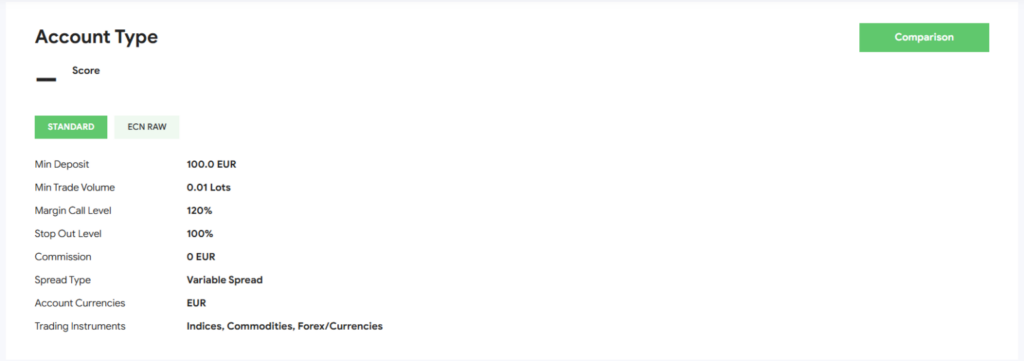Our continuing investigation into “Key To Trading” has uncovered even deeper concerns, expanding upon the troubling revelations detailed in our initial report. With every thread we pull, a darker narrative emerges — one that involves deeper secrecy, potential collusion, and systemic risks that go far beyond consumer fraud. Today, we dive further into the network, shedding light on the broader implications of this operation and its potential impact on the financial ecosystem. If the first layer raised eyebrows, what we’ve uncovered now should raise alarm bells.
Shadows Behind the Curtain: The True Ownership
If the origins of “Key To Trading” were murky before, our latest findings expose just how opaque they truly are. While the platform’s website promotes a polished public image, its true ownership structure seems designed to obscure accountability. New open-source intelligence (OSINT) data shows:
- Web of Shell Companies: Our investigation traced “Key To Trading’s” ownership through a labyrinth of shell companies. These entities, many registered in notoriously opaque jurisdictions such as the Seychelles and St. Kitts and Nevis, have no discernible business activity beyond their connection to “Key To Trading.”
- Nominee Directors: Many of the directors listed for these entities appear to be nominees—individuals who are paid to lend their names to corporate filings while having no actual involvement. Several of these nominees have been flagged in prior international investigations into tax evasion and money laundering schemes.
- Hidden Beneficiaries: There’s strong circumstantial evidence suggesting that “Key To Trading” may be indirectly controlled by individuals who have been sanctioned or barred from the financial sector in their home countries. We are currently seeking confirmation from regulatory bodies regarding this link.
This deliberate opacity doesn’t just raise ethical questions; it’s a glaring red flag for anyone considering a business relationship with the platform.

Expanding the AML Risk: Beyond Negligence
Previously, we highlighted “Key To Trading’s” lax Know Your Customer (KYC) protocols and offshore affiliations as anti-money laundering (AML) risks. Now, with more data at hand, the situation appears far graver.
- Crypto Connections: Leaked documents reveal that “Key To Trading” facilitated payment processing for a now-defunct cryptocurrency exchange accused of laundering proceeds from ransomware operations. This exchange, registered in the British Virgin Islands, had ties to criminal syndicates in Eastern Europe.
- Suspicious Transactions: Financial analysts flagged multiple transactions tied to “Key To Trading” as “structuring”—a method of breaking large transactions into smaller ones to evade reporting thresholds. These transactions reportedly passed through institutions under scrutiny for AML compliance failures.
- Regulatory Loopholes: By routing payments through jurisdictions with weak AML frameworks, “Key To Trading” effectively shields its fund flows from international oversight. Experts warn that such practices are not merely negligent but indicative of deliberate facilitation of illicit activity.
This combination of factors paints “Key To Trading” as a potential nexus for criminal financial activities, a risk that goes well beyond individual investors.

Fraudulent Practices: Consumer Harm Amplified
The complaints we previously reported—non-delivery of services, aggressive upselling, and fake testimonials—are just the tip of the iceberg. Additional interviews with former clients and whistleblowers reveal a pattern of systematic exploitation:
- Unlicensed Financial Advice: Internal documents suggest that “Key To Trading” representatives routinely provide financial advice without holding the necessary licenses. This includes directing customers to invest in high-risk derivatives and foreign exchange markets.
- Fabricated Credentials: Whistleblowers disclosed that sales representatives and “trainers” at “Key To Trading” are instructed to embellish or fabricate their professional experience. Some reportedly posed as ex-Wall Street traders when, in reality, they were call center employees.
- Predatory Tactics: Vulnerable individuals, such as retirees and those inexperienced in trading, were allegedly targeted with promises of “easy profits.” Victims described being emotionally manipulated into draining their savings or taking out loans to invest in the platform’s dubious offerings.
These practices not only harm individual consumers but also erode public trust in legitimate financial education platforms.
Underground Alliances: Links to Other Fraudulent Ventures
While “Key To Trading” markets itself as an independent entity, our findings suggest it’s part of a larger ecosystem of questionable ventures. Using advanced data analysis tools, we discovered:
- Shared Infrastructure: Multiple websites affiliated with known scams share hosting infrastructure, design templates, and marketing copy with “Key To Trading.” This points to a coordinated effort rather than mere coincidence.
- Recycled Leads: Victims of prior financial scams reported being contacted by “Key To Trading” representatives, suggesting the platform may purchase customer data from failed or defunct scams.
- Front Companies: Entities associated with “Key To Trading” have been flagged in prior investigations for facilitating pump-and-dump schemes, binary options fraud, and unregistered securities sales. This track record casts serious doubt on the platform’s legitimacy.

Insider Collusion: Regulatory Capture in Question
Perhaps the most alarming revelation is the apparent coziness between “Key To Trading” and certain regulatory officials. Anonymous sources within regulatory bodies allege that:
- Bribery Allegations: Representatives of “Key To Trading” have reportedly attempted to influence lower-level regulators in Eastern Europe to avoid investigations or penalties.
- Strategic Appointments: At least one former employee of a regulatory agency now serves as a consultant to “Key To Trading.” This raises concerns about the platform leveraging insider knowledge to evade scrutiny.
- Delayed Investigations: Complaints filed against “Key To Trading” have languished in regulatory limbo, prompting allegations of intentional delays or suppression.
If true, these allegations suggest not just a failure of oversight but an active subversion of regulatory processes.
Environmental and Social Responsibility: A Hollow Facade
Adding to its list of misdeeds, “Key To Trading” appears to use token environmental and social initiatives as a shield against criticism. The platform claims to support charitable causes and sustainability efforts, but:
- No Verifiable Contributions: Investigations into the charities listed on its website reveal no record of donations from “Key To Trading.”
- Greenwashing Tactics: Claims of using eco-friendly servers and sustainable practices are unsubstantiated. In reality, the company’s data centers operate in jurisdictions with some of the least sustainable energy grids in the world.
- Token Corporate Social Responsibility (CSR): Experts describe such initiatives as “CSR-washing”—designed to distract from the platform’s ethical failings.
A Financial Time Bomb
Beyond reputational damage, “Key To Trading’s” systemic risks could have broader implications:
- Market Destabilization: If the platform’s dubious practices lead to a collapse, the ripple effects could impact affiliated businesses and financial institutions.
- Regulatory Fallout: A high-profile scandal could spur stricter regulations on legitimate trading education platforms, harming the industry as a whole.
- Investor Exodus: As word spreads, legitimate investors may abandon not just “Key To Trading” but any entity linked to it, creating a chilling effect on partnerships.

Conclusion: A Call to Action
“Key To Trading” has positioned itself as a beacon for aspiring traders, but the reality is far from the polished image it projects. From its opaque ownership to its fraudulent practices and potential role in criminal financial activities, the platform is a ticking time bomb that could explode at any moment.
Regulators, industry watchdogs, and consumers must act swiftly. For regulators, this means launching comprehensive audits and freezing suspicious accounts. For consumers, it means exercising extreme caution and seeking verifiable alternatives. And for the financial industry, it’s a call to improve self-regulation to prevent bad actors from exploiting systemic vulnerabilities.
Our investigation into “Key To Trading” isn’t over, and neither is the story. The question is, will anyone act before it’s too late?







